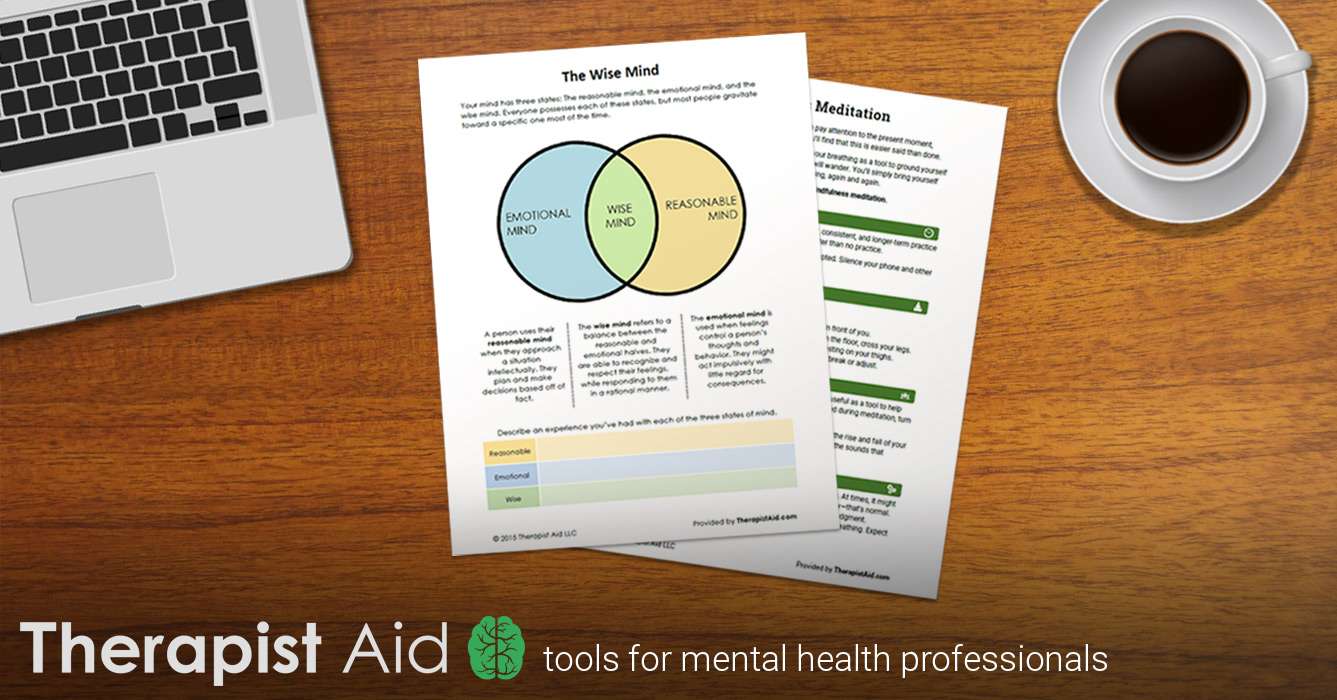Humanistic therapy is a mental health approach that emphasizes the importance of being your true self in order to lead the most fulfilling life.
It’s based on the principle that everyone has their own unique way of looking at the world. This view can impact your choices and actions.
Humanistic therapy also involves a core belief that people are good at heart and capable of making the right choices for themselves. If you don’t hold yourself in high regard, it’s harder to develop your full potential.
Read on to learn more about humanistic therapy, including how it works and tips for finding a therapist.
How does it work?
Humanistic therapy involves better understanding your world view and developing true self-acceptance.
This is accomplished partially through the development of unconditional positive regard, both from others and from yourself. When you believe that others only respect you if you act a certain way, it’s easy to fall into the trap of constantly feeling like you aren’t enough.
This feeling of worthlessness, in turn, can negatively impact how you view both yourself and the world around you. Remember, according to the underlying principles of humanistic therapy, how you view yourself and the world around you has a big impact on your thoughts and actions.
Humanistic therapy can help you to both develop self-acceptance and overcome criticism or disapproval from others by offering a safe space to work toward personal growth. There are ways of doing this, which we’ll go over later.
How does it compare to other types of therapy?
Humanistic therapy differs from more traditional approaches, such as psychoanalysis or behavioral therapy.
To start, humanistic therapy tends to focus more on your current day-to-day life. This is very different from other approaches that tend to focus on your past experiences, including those you might not be aware of.
Similarly, humanistic therapy also focuses more on helping the individual as a whole, rather than treating a specific diagnosis. A humanistic therapist will often do this through active listening. This means that they’ll listen carefully to your words, making sure they fully understand what you’re saying. They may stop you to ask follow-up questions.
Humanistic therapists work from the idea that you are the expert in your difficulties. They’ll support the direction you take each session, trusting you to know what you need to talk about in order to work through the things bringing you to therapy.
What are some examples of humanistic therapy?
Humanistic therapies include a number of approaches. Three of the most common are Gestalt therapy, client-centered therapy, and existential therapy.
Gestalt therapy
In Gestalt therapy, your personal experiences are key, along with describing what you’re going through in your own words. It’s based on an underlying theory that unresolved conflicts with others — including family members or romantic partners — lead to distress.
Gestalt therapy provides a state of “safe emergency” where you can explore, in the present moment, the things bothering you. For example, you might explore the belief that your opinions don’t matter to your partner.
Therapists help create the “here and now” atmosphere by asking what you’re currently aware of or how certain emotions make you feel. You might use a range of techniques to do this, including:
- role-playing
- exaggerating a behavior
- reenacting a scenario
For example, you might be asked to visualize a person you’re having a conflict with sitting in an empty chair across from you. Then, you’ll carry out a conversation as if the person were actually sitting there.
Client-centered therapy
Also known as person-centered therapy and Rogerian therapy, this approach is considered the main type of humanistic therapy.
It’s based on the idea that absorbing criticism or disapproval from others can distort the way you see yourself. This blocks personal growth and prevents you from living a fulfilling life, which in turn leads to mental distress.
As the name suggests, it also places a lot of focus on developing a strong client-therapist relationship.
A client-centered therapist will unconditionally accept you, even if they disagree with some aspect of your behavior. Feeling accepted in therapy, no matter what you share, can help you avoid holding back out of fear of disapproval.
You’ll guide the direction of therapy while your therapist listens without judgement.
Existential therapy
Existential therapy draws more from philosophy than most other approaches to mental health treatment. The goal of this approach is to help you understand how your existence — the concept of you as a whole person — affects your unique worldview.
Existential therapists help you understand and explore the meaning you give to things that happen in your life. With their guidance, you’ll learn to accept responsibility for choices you make and realize the freedom you have to make changes that will give your life greater meaning.
Like other humanistic approaches, existential therapy is mainly concerned with the issues you currently face, rather than things from your past. But it does consider how your thoughts — conscious or unconscious — impact your mental health and goals.
Who’s a good candidate for humanistic therapy?
Humanistic therapy is worth a shot if you’re looking for ways to make your life more fulfilling, regardless of whether you have an underlying mental health condition. It’s also worth considering if you’ve previously had trouble building a rapport with therapists.
A 2002 review of 86 studies found that humanistic therapies were effective at helping people make lasting change over time. People in humanistic therapy showed more change than people in no therapy at all, according to the review.
People in other types of therapy showed similar amounts of change, suggesting it’s more about finding a type of therapy that you enjoy and will commit to doing.
In addition, a 2013 review of existing research suggests that client-centered approaches can be helpful for:
- trauma
- relationship difficulties
- psychosis
- depression
- coping with chronic health issues
However, it wasn’t quite as effective as cognitive behavioral therapy for addressing anxiety and panic disorder.
Whether a humanistic approach fits your needs can depend on what you want to get out of therapy. Humanistic therapies typically don’t make diagnosis a priority and may not work toward specific treatment goals.
If you have specific symptoms or behaviors you’d like to address or are seeking therapy with a clear goal for diagnosis and treatment, you might find a different approach more helpful. On the other hand, it may be a good fit if you’re simply feeling “stuck” or in a rut.
Keep in mind that other types of therapy often incorporate aspects of humanistic therapy, such as unconditional acceptance and active listening.
How do I find a humanistic therapist?
It’s not always easy to find the right therapist. When looking for a humanistic therapist, start by considering what you’d like to work on. This can be a specific issue or a more abstract concept.
Also think about any traits you’d like in a therapist. Would you prefer to work with a therapist of your own gender? The therapist-client bond is particularly important in humanistic therapy, so you’ll want to make sure the therapist is one you’ll feel comfortable with.
When looking for a therapist, you also want to take note of how much each potential therapist charges per session. Some therapists take insurance, but others don’t. And some may offer a sliding scale program that allows you to pay what you can.
Learn more about how to find affordable therapy.
The bottom line
Humanistic therapy is a type of mental health treatment that centers around your unique experience and perspective. Humanistic therapists offer empathy, genuine concern for you and your experience, and unconditional positive regard.
While it might not be the best option for getting a concrete mental health diagnosis, it can be a good option if you’re simply looking for ways to lead a more meaningful life.
What Is Humanistic Therapy?
Humanistic therapy describes a range of different types of therapy that focus on a person as an individual with unique potential and abilities. Instead of concentrating on what is wrong with people, this type of therapy is more focused on helping them overcome their difficulties through personal growth.
Humanistic therapy grew out of humanistic psychology, a perspective that stresses that people are innately good. This approach tends to be more holistic and looks at the whole person rather than just a single area of a person’s life. By emphasizing a person’s skills and positive characteristics, it encourages people to heal and find personal fulfillment.
Types of Humanistic Therapy
There are a number of different types of humanistic therapy. Some of these include:
- Client-centered therapy: Also known as person-centered therapy, this approach involves the therapist taking a non-directive approach to the therapy process. The individual acts as an equal partner, while the therapist offers empathy and unconditional positive regard.
- Existential therapy: This is a philosophical approach to therapy that works to help people better understand their place in the universe. It works by helping people explore the things that bring meaning to their life. People learn to accept responsibility for their own choices and recognize that they have the power to make changes in order to bring more meaning and purpose to their lives.
- Gestalt therapy: This form of humanistic therapy focuses on a person’s current life and experiences rather than looking at their past. It places a great deal of emphasis on how the individual perceives and makes meaning out of their experiences.
- Logotherapy: This type of therapy focuses on helping people find ways to endure life’s difficulties and find a sense of purpose and meaning. It proposes that finding meaning in life can help improve mental well-being and relieve symptoms of conditions including depression, grief, and trauma.
- Narrative therapy: This approach to therapy helps people identify their values and skills by focusing on their personal stories and experiences. It strives to help people see that they are separate from their problems.
Humanistic therapy is an umbrella term that encompasses a number of different types of therapy. The specific type of humanistic therapy that is right for you may depend on your goals and what symptoms are being treated.
Techniques
Humanistic therapists use a number of techniques that are designed to support people as they work toward change. Some of the main techniques that are frequently used include:
- Congruence: This technique is essential to humanistic therapy and involves the therapist being authentic, open, and genuine as they interact with the individual who is in therapy.
- Empathetic understanding: This involves the therapist not only understanding what the client is feeling and saying, but also communicating that understanding to the client. The individual should feel heard, seen, and understood.
- Reflective listening: This involves actively listening to the individual and then summarizing what the client has said in their own words. This strategy can help reinforce what the client is saying, allow them to reflect back on their own words, and clear up potential misunderstandings.
- Unconditional positive regard: This technique involves the therapist accepting the individual without judgment. It is characterized by a caring attitude that plays an important role in fostering self-worth, personal growth, and self-awareness.
Because humanistic therapy is focused on the present, it may also utilize a practice known as mindfulness to help people become more aware of themselves and their environment.
Therapists utilize these techniques to support people as they develop greater self-awareness. These techniques are focused on solving specific problems; instead, their goal is to encourage people to view themselves as capable of directing their own behavior and achieving their unique goals.
What Humanistic Therapy Can Help With
There is not a great deal of research on the efficacy of humanistic therapy for specific conditions. This may be in part because these approaches focus less on measurable symptoms and outcomes. However, humanistic therapy has been used to treat a range of different mental health conditions. Some of these include:
This approach can also be helpful for people who are not focused on treating a specific condition. Those who are interested in maximizing their potential and growing as a person may benefit from humanistic therapies.
Benefits of Humanistic Therapy
One benefit of humanistic therapy is that this approach can be a great source of empathy and support. Because therapists are trained to be non-judgemental and listen with understanding, you may feel more comfortable opening up and sharing your feelings.
Humanistic therapy also allows the individual to play an active role in their treatment, while the therapist acts as a knowledgeable, trusted guide.
Because humanistic therapy focuses on a person’s positive qualities, it can help people feel more empowered and active in the process of making changes in their lives. Rather than feeling overwhelmed or dragged down by problems, it encourages people to focus on their strengths and use those skills to fulfill their needs.
This approach to therapy can also be a good way to learn coping skills—including problem-solving and stress relief—that will be helpful whenever you are faced with problems in your life. Because it fosters self-esteem and self-efficacy, you’ll feel more capable as you deal with challenges.
Effectiveness
Research suggests that humanistic therapy can be an effective treatment approach when dealing with a range of disorders and other difficulties.
- A 2013 review of the research found that client-centered therapy was an effective approach in the treatment of depression, psychosis, relationship problems, and trauma.
- A 2017 study found that young people experiencing psychological distress showed improvement in emotional symptoms after receiving humanistic counseling.
- A 2019 exploratory trial compared client-centered therapy to trauma-focused cognitive behavior therapy in the treatment of mothers and children who had experienced trauma. While the results indicated that client-centered therapy led to significant symptom reduction in children, CBT was found to be much more effective at reducing symptoms in mothers.
Things to Consider
Humanistic therapy is a type of talk therapy. It is holistic, so expect it to cover many different aspects of your life. However, it tends to focus more on the here-and-now rather than delving into the burdens and difficulties of the past. Some may find this challenging because it emphasizes taking personal responsibility and direct action to make your present life better rather than placing blame.
Because humanistic therapists are often less directive than other types of therapists, you will play an active role in guiding your treatments. Your therapist will act as a supportive and empathetic guide. Rather than viewing your therapist as a teacher or authority figure, they will instead be equal. This may be difficult if you prefer a more structured approach.
It is important to recognize that humanistic therapy doesn’t address specific problems. If you are having problems that would be better addressed by a more problem-oriented, structured type of therapy, then humanistic therapy might not be right for your needs.
Humanistic therapy can help you achieve personal growth, but it doesn’t tend to focus on solving specific disorders or symptoms. You should consider your needs and goals before deciding if humanistic therapy is right for you.
How to Get Started With Humanistic Therapy
If you are interested in trying this type of therapy, your first step is to find a therapist who practices humanistic therapy. You might ask your primary health care provider for a referral to a professional in your area. Another option is to search an online therapist directory.
If you prefer to try online therapy, check with the therapy platform or look for providers in your area who offer an online therapy option.
If possible, ask for an initial consultation so that you can decide if the therapist is a good match. A therapist who is non-judgmental, empathetic, warm, and understanding can help build a stronger therapeutic alliance. Research suggests that it is this rapport between the therapist and the client that plays a critical role in therapy outcomes.



